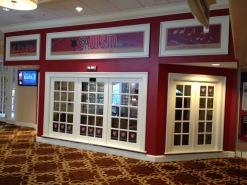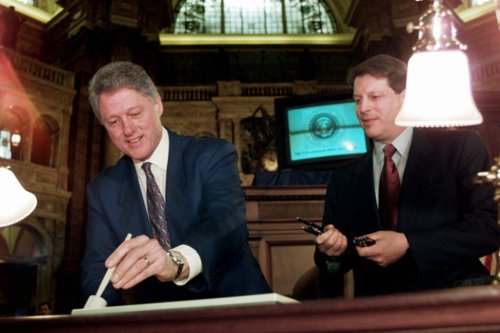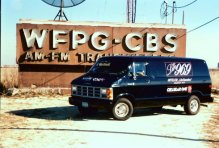 Would you invest more money in a company that takes your money and won’t refund it during a global pandemic, instead preferring to hide behind policies designed for the way things used to be before COVID19?
Would you invest more money in a company that takes your money and won’t refund it during a global pandemic, instead preferring to hide behind policies designed for the way things used to be before COVID19?
I think not.
The Travel Industry
Let me share with you two stories that happened to me recently involving our 2020 travel plans.
These stories involve an airline and a cruise line. While we realize that both of these industries are being dramatically challenged, the way they handle the short-term will most surely impact their long-term survival.
Royal Caribbean International Cruise Lines
My wife and I planned to visit the only state in the United States neither of us had ever been too before, Alaska. We made plans to cruise to Alaska from Vancouver, BC.
Before our cruise, we would fly to Nevada for my oldest son’s wedding, then drive up to Montana to visit my wife’s daughter and family, to be followed with a drive to Washington state to visit another daughter and family.
On the 4th of July we planned to Amtrak from Washington state to Vancouver, BC and board our cruise ship for a weeklong trip to Alaska. We made plans for off-shore excursions during the cruise and paid for everything in advance.
We planned to fly from Vancouver, BC to Washington, DC to get back home.
Then COVID19 hit and we had to cancel everything.
Amtrak refunded our money, the off-shore excursions company refunded our money, the hotels along the way all accepted our cancellations with no fees, but Royal Caribbean Cruise Lines wouldn’t refund our $500 deposit.
How do you think we feel when they send us new offers to take a cruise with them?
Air Canada
Air Canada was the airline we had selected to fly back home from Vancouver, BC when our cruise returned to port. We paid for business class tickets to get seats with a little extra room. Total cost for two tickets, paid-in-advance on February 5, 2020, $1,185.38.
We booked directly with the airline on their website.
Then on March 10, 2020 we receive notice from Medicare saying that the “CDC is advising older adults and people with severe chronic medical conditions like heart, lung or kidney diseases, are at a higher risk of serious illness if they contract the COVID19 virus.” That “means that most people with Medicare are at a higher risk,” they wrote.
“Your health, safety, and welfare is our highest priority,” wrote the Medicare email.
It went out to spell out activities that we should not engage in:
- Avoid crowds, especially in poorly ventilated spaces with limited air circulation.
- Defer all cruise ship travel worldwide, particularly if you also have underlying health issues.
- Avoid situations that put you at increased risk, including non-essential travel such as long plane trips.
But Air Canada doesn’t recognize any of this as a valid reason that I would then go to their website and cancel our two plane tickets on March 23, 2020. Instead of offering a refund, they said we could have a travel voucher to use good through March 30, 2021.
How do you think we feel when they send us new offers to fly with Air Canada?
How do you think this makes us feel about even wanting to visit our neighbors to the north?
COVID19 Closed Border
Currently the border between America and Canada is closed. We couldn’t even get to the Royal Caribbean cruise ship if we wanted, nor could we board an Air Canada plane in Vancouver.
That’s something I don’t remember ever happening in my lifetime.
Would it be fair to say these are extenuating circumstances that call for forbearance of rules regarding customer refunds created before the COVID19 global pandemic?
How Much Is a Customer Worth?
What companies often forget is the lifetime value of a customer when they make decisions in the short-term. Repeat business is the way you build a business.
Sadly, the above mentioned companies won’t be seeing us beating a path to their door.
But worse, they’ve now made ALL cruise lines and ALL airlines suspect about their business practices.
Guilt by Association
I learned this lesson from one of my clients, an AAMCO Transmission repair shop. He told me that a lot of people considered transmission repair places to be underhanded. Stories about putting saw dust in the transmission to temporarily solve a problem and make a quick buck instead of doing the actual work of repairing it.
He said when any transmission shop cheated a customer in anyway, it reflected badly on all transmission repair businesses.
I never forgot that lesson when I became a radio station manager.
Storm Center
When I managed a cluster of radio stations for Clear Channel Radio in Sussex, New Jersey we sold an annual package to our clients that gave them immediate access to our airwaves and website to inform their customers of their reduced or changed hours of operation, due to a snow/ice storm, or if they would be closed completely. It was a solid revenue source for my radio stations and appeared as a line item in my budget.
It took a lot of extra manpower to staff our storm center handling calls from listeners and businesses and getting everything broadcast on our four radio stations and their individual websites.
Then the Clear Channel RIFs came along. (RIF = Reduction In Force) I was told by my regional manager that the company’s new automated online system would replace the need for all those people and not to worry.
When the first storm hit, the system crashed. It happened again during the second storm of the season too. I gave our IT people in New York City a tongue lashing, which got me an angry call from my regional manager telling me to stop calling the people in New York and bothering them with my problem.
I never called New York again.
Instead I walked down the hall to my business manager and told her to refund every dollar our clients had paid us to be a part of our storm center and composed a letter to go with the refund checks saying that due to unforeseen circumstances, we could not deliver on what we had promised. Our company’s new automated system had bugs that were being addressed but that I had no idea when they would be fixed. However, we would still do our best with our limited staff to air their cancellation notices and then post them on our websites at no charge.
I didn’t lose a single advertiser, and proceeded to take this lemon of a situation and turn it into lemonade.
Customer Service
People don’t care what you say your customer service policy is. All the flowery language in the world will never camouflage the actions you take in response to a customer’s problem.
Everyone knows what the right thing to do is, in any given situation.
Best management advice I can share with you is, just do the right thing.
P.S.
When it came time to review my quarterly results against my budget, my regional manager asked why I had gone from $30,000 to zero in storm center revenue. When I told him what I had done, you can imagine he was none too happy about it.
However, our revenues and bottom line for that year both exceeded our budget, proving to me you can never go wrong when you do the right thing.

 From my earliest days, I knew what I wanted to do in life. Drive a car, fly a plane and be a disc jockey.
From my earliest days, I knew what I wanted to do in life. Drive a car, fly a plane and be a disc jockey. radio station with local traffic reports during beach season. When I took over the job, everything was already in place for flying lessons and I took advantage of the arrangement and learned to fly.
radio station with local traffic reports during beach season. When I took over the job, everything was already in place for flying lessons and I took advantage of the arrangement and learned to fly. Whenever people would ask me what I wanted to do next with my life, my answer was always the same, teach. Yes, I wanted to teach at a college or university the very profession that I had spent my entire working life doing, radio.
Whenever people would ask me what I wanted to do next with my life, my answer was always the same, teach. Yes, I wanted to teach at a college or university the very profession that I had spent my entire working life doing, radio. Castle of the South
Castle of the South I had not been behind the mic on a radio station in 35-years. I had a 10-minute lesson in how to run the control board from Joe and then was off on my own to do the next
I had not been behind the mic on a radio station in 35-years. I had a 10-minute lesson in how to run the control board from Joe and then was off on my own to do the next  Radio, like all traditional media, is in the economic fight of its life.
Radio, like all traditional media, is in the economic fight of its life. Radio is a business.
Radio is a business. It started by seeing a movie called “
It started by seeing a movie called “ Sadly, it’s that time of the year when radio station budgets are being finalized and staffs are being cut before the start of a new year.
Sadly, it’s that time of the year when radio station budgets are being finalized and staffs are being cut before the start of a new year. Kansas City Filmmaker
Kansas City Filmmaker  It was supposed to provide competition between the phone companies and the cable companies with the goal to increase services and reduce prices to the consumer.
It was supposed to provide competition between the phone companies and the cable companies with the goal to increase services and reduce prices to the consumer. For thirteen years I was the general manager of WFPG AM/FM in Atlantic City, New Jersey. The stations were successful. I was active in Rotary, the local chambers of commerce, community social programs in addition to running the radio stations.
For thirteen years I was the general manager of WFPG AM/FM in Atlantic City, New Jersey. The stations were successful. I was active in Rotary, the local chambers of commerce, community social programs in addition to running the radio stations. This past week was another tough one for the wonderful people who work in radio. Most people who get into radio do it because they’ve caught the “radio bug” and the work becomes their life’s passion. I know that’s how it is for me.
This past week was another tough one for the wonderful people who work in radio. Most people who get into radio do it because they’ve caught the “radio bug” and the work becomes their life’s passion. I know that’s how it is for me. I am a trombone player. Or maybe I should say “was” as it’s been quite a few years since I picked up the horn. Growing up, I knew that was the instrument I wanted to play. Out of all the instruments in the band, trombone was the one that caught my attention and was relevant to me.
I am a trombone player. Or maybe I should say “was” as it’s been quite a few years since I picked up the horn. Growing up, I knew that was the instrument I wanted to play. Out of all the instruments in the band, trombone was the one that caught my attention and was relevant to me.